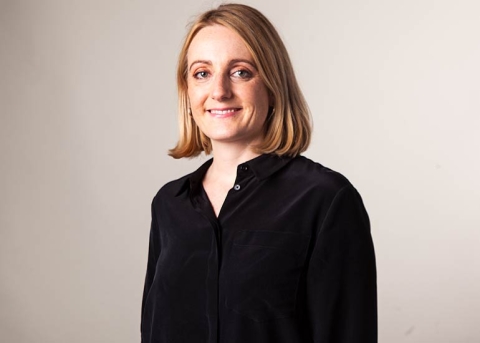

Dr Julia Brown
Biography
I completed a Bachelor of Science in Geography at the University of Lancaster in 1999. I then went on to complete a Master of Research in Environment and Development (Overseas Placement), in 2001. I then worked for a London based consultancy company for three years before completing a PhD in “Participatory Processes and Outcomes of South Africa’s Water Reforms”, in the Institute of Development Policy and Management (IDPM) at the University of Manchester in 2007. Whilst at Manchester I undertook research for the Centre on Regulation and Competition, a UK DfID funded research centre at IDPM. I joined the Geography Department in March 2008, completing a Postgraduate Certificate in Teaching and Learning in Higher Education in 2010.
Research interests
Geographies of Water: participation, power and politics
My empirically-grounded critiques of the failings of participatory governance initiatives in South Africa to overcome existing power relations and effect redistribution of water have made a contribution to the growing geography of water literature. Failure to account for the inherently political nature of water management and its reform indicates fundamental policy flaws, and state directed reallocations of water are called for.
Rural Ground Water Supplies: community-based management or social entrepreneurs?
In order to meet the ambitious Millennium Development Goals of halving the number of people without access to safe and clean drinking water, there is the need for donors, NGOs and governments to focus on the sustainability of water supplies, and not just extending the supply network. The current community-based model of rural water management is deemed by one NGO, The Water Trust, to be failing in Uganda. An evaluation of a pilot scheme that is vesting the management and maintenance of rural water pumps with local social entrepreneurs in Uganda commences summer 2013. External funding will then be sought to determine whether the social entrepreneur model offers a more sustainable solution to rural water supplies, and achievement of the Millennium Development, than the current community-based model.
Evaluating Evaluations
It is increasingly recognised in development circles that new policies initiatives need to be subject to rigorous and critical review and evaluation. But how to evaluate is something many agencies and NGOs are still grappling with. Building on my PhD studies, I have developed an evaluative framework that explores both the processes and outcomes of new programmes and initiatives across different scales which will be used in future work.
Mobile Phones and Development
With colleagues across Portsmouth, I am interested in critically exploring the utility of mobile phones in the context of hard and soft security.
Research outputs
2025
Depersonalized prepayment technology with a service provider: the communities’ choice for the sustainable management of handpumps in Gomba District, Uganda
Brown, J.
27 Oct 2025, In: Water International, 24p.
Research output: Article
Belief in animal sentience and affective owner attitudes are linked to positive working equid welfare across six countries
Haddy, E. C., Burden, F., Raw, Z., Rodrigues, J., Zappi, H., Brown, J., Kaminski, J., Proops, L.
1 Jan 2025, In: Journal of Applied Animal Welfare Science. 28, 1, p. 116–134
Research output: Article
2024
“We forgot about the donkeys!” An institutional analysis of the shift in animal welfare from direct implementation towards advocacy-based programming
Haddy, E., Proops, L., Burden, F., Raw, Z., Kaminski, J., Brown, J.
14 Feb 2024, In: Animal Welfare. 33, 9p., e9
Research output: Article
2023
Sustainability in NGO programming: a case study of working equid welfare organizations
Haddy, E., Brown, J., Burden, F., Raw, Z., Kaminski, J., Proops, L.
19 Dec 2023, In: SAGE Open. 13, 4, 12p.
Research output: Article
Making space for solidarity: the transformative role of shame in challenging racialised hegemony
Wolf, O., Brown, J., Leddy‐owen, C., Martin, D.
1 Mar 2023, In: Area. 55, 1, p. 108-115
Research output: Article
2022
“What can we do to actually reach all these animals?” Evaluating approaches to improving working equid welfare
Haddy, E. C., Brown, J., Burden, F., Raw, Z., Kaminski, J., Proops, L.
9 Sep 2022, In: PLoS One. 17, 9, 21p., e0273972
Research output: Article
Urban greening snakes and ladders: a case study of the practical realities of implementing Food-Water-Energy nexus projects in Southend-on-Sea
Rumble, H., Brown, J.
27 Jul 2022,
Research output: Chapter (peer-reviewed)
Conclusion
Brown, J., Coulter, C., Melis, A.
27 Jul 2022,
Research output: Chapter (peer-reviewed)
Designing Sustainable and Resilient Cities: Small Interventions for Stronger Urban Food-Water-Energy Management
Melis, A., Brown, J., Coulter, C. M.
26 Jul 2022,
Research output: Book
2021
“Littered with logos!”: an investigation into the relationship between water provision, humanitarian branding, donor accountability, and self-reliance in Ugandan refugee settlements
Martin, D., Brown, J.
1 Dec 2021, In: Refugee Survey Quarterly. 40, 4, p. 433-458, 26p.
Research output: Article
